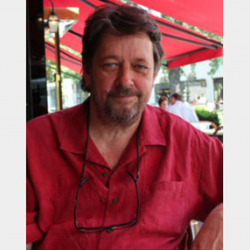Biography
Per-Olof H. Wikström (PhD, Docent, Stockholm University), FBA, is Emeritus Professor of Ecological and Developmental Criminology at the Institute of Criminology, University of Cambridge.
He is the founding director, and current co-director with associate Professor Kyle Treiber, of the Centre for Analytic Criminology and the Principal Investigator of Peterborough Adolescent and Young Adult Development Study (PADS+), a major ESRC funded research project which aims to advance knowledge about crime causation and the foundations for developing effective crime prevention. Professor Wikström's main research interests are developing unified theory of the causes of crime (Situational Action Theory), its empirical testing and its application to devising knowledge-based prevention policies.
Key book publications
Character, Circumstance and Criminal Careers. Towards a Dynamic Developmental and Life-Course Criminology (2024, together with Kyle Treiber and Grabriel D. Roman); När brott blir ett Acceptabelt Handlingsalternativ (2023); Breaking Rules. The Social and Situational Dynamics of Young People's Urban Crime (2012, with Dietrich Oberwittler, Kyle Treiber & Beth Hardie); The Explanation of Crime: Contexts, Mechanisms and Development (2006, editor together with Robert J. Sampson); Adolescent Crime: Individual Differences and Lifestyles (2006, with David Butterworth); Urban Crime, Criminals and Victims (1991).
Key articles and book chapters (2000-)
Analytic criminology. Mechanisms and methods in the explanation of crime and its causes (2022, together with Clemens Kroneberg); Towards a true social ecology of crime: On the limitations of a criminology without people (2022). Situational Action Theory. A General, Dynamic and Mechanism-based Theory of Crime and its Causes (2019); Explaining Crime and Criminal Careers. The DEA model of Situational Action Theory (2019); The Dynamics of Change. Criminogenic Interactions and Life-Course Patterns of Crime (2019, together with Kyle Treiber); Young people’s differential vulnerability to criminogenic exposure: Bridging the gap between people- and place-oriented approaches in the study of crime causation (2018, together with Richar Mann & Beth Hardie); Character, Circumstances, and the Causes of Crime (2017); Beyond Risk Factors: An Analytical Approach to Crime Prevention. (2017, together with Kyle Treiber), Social Disadvantage and Crime. A Criminological Puzzle (2016, with Kyle Treiber), Analysing radicalization and terrorism: A situational action theory (2016, together with Noemie Bouhana), Situational Theory. The importance of interactions and action mechanisms (2015, with Kyle Treiber), Why Crimes Happens (2014), Towards an Analytical Criminology (2013, with Kyle Treiber), Does Everything Matter? Addressing the Problem of Causation and Explanation in the Study of Crime (2011), Explaining Crime as Moral Action (2010), Activity Fields and the Dynamics of Crime. Advancing Knowledge About the Role of the Environment in Crime Causation (2010, with Vania Ceccato, Beth Hardie & Kyle Treiber), What Drives Persistent Offending? The Neglected Role of the Social Environment (2009, with Kyle Treiber), The Social Ecology of Crime. The Role of the Environment in Crime Causation (2007), The Social Order of Violence in Chicago and Stockholm Neighbourhoods. A Comparative Inquiry (2008, together with Robert J Sampson), The Social Origins of Pathways in Crime (2005), Crime as an Alternative: Towards a Cross-Level Situational Action Theory of Crime Causation (2004), Social Mechanisms of Community Influences on Crime and Pathways in Criminality (2003, with Robert J Sampson) and Do Disadvantaged Neighbourhoods Cause Well-Adjusted Children to Become Adolescent Delinquents (2000, with Rolf Loeber).
Major Scientific Honours and Awards
In 1992 he was elected Northern Scholar by the University of Edinburgh, in 1994, he received the Sellin-Glueck Award for outstanding contributions to international criminology from the American Society of Criminology, in 2002 he was made a Fellow of the Center for Advanced Study in the Behavioral Sciences, Stanford, in 2010 he was made a Fellow of the American Society of Criminology, in 2011 he was elected a Fellow of the British Academy, in 2016 he was a winner of the 2016 Stockholm Prize in Criminology, in 2017 he received an Honorary Doctorate from UNED, Madrid, in 2024 he was awarded the Beccaria Gold Medal by the criminological society of German speaking countries for “exceptionally outstanding contributions to the discipline of criminology”.
Research
Professor Wikström's main research interests are in the causes of crime, urban crime, adolescent offending, criminal careers, crime prevention and cross-national comparative research.

